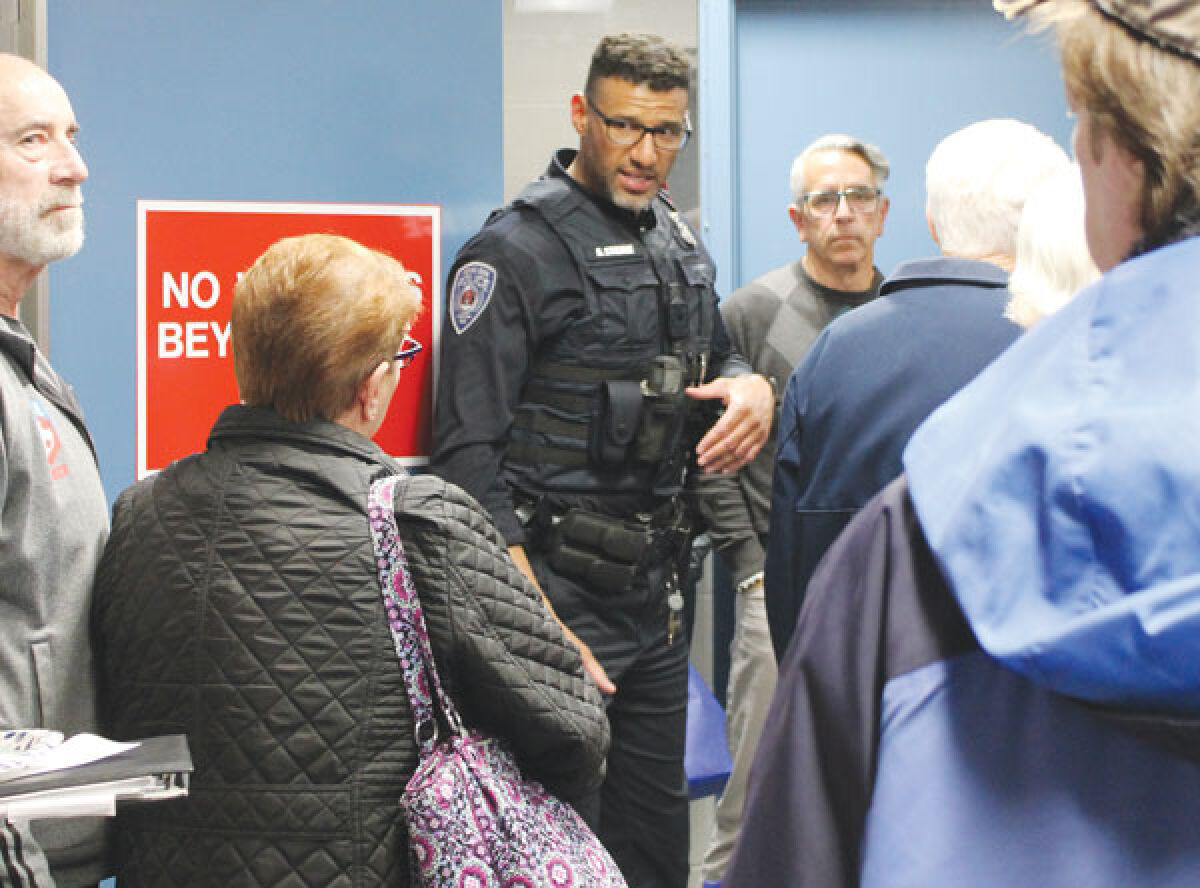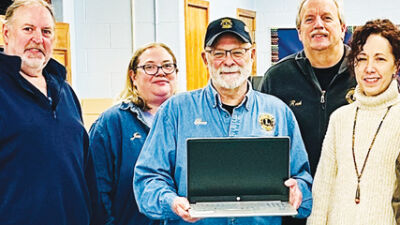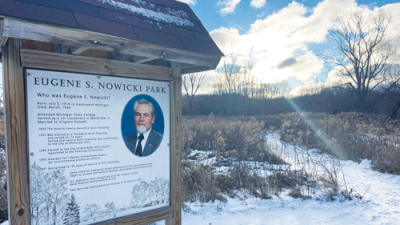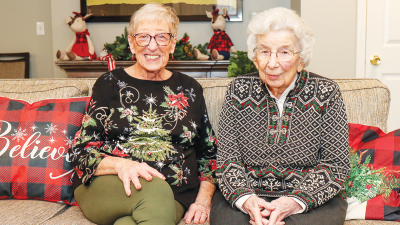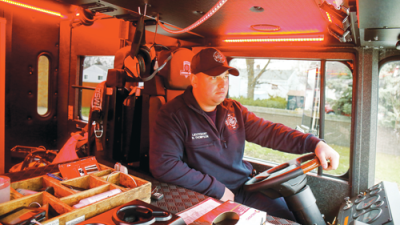ROYAL OAK — On April 24, residents of Royal Oak were invited to a public open house hosted by the Royal Oak Police Department and the 44th District Court to learn about the practices and initiatives these two organizations currently have in place.
The Justice Open House is the first event hosted by the newly formed Community Engagement Advisory Board, which was appointed by the City Commission.
According to Community Engagement Specialist Judy Davids, there will be more of these types of events in the future.
Police officer Renee Hertz spoke about the Comeback Quick Response Team, an initiative that has been in place since 2023.
The Comeback Quick Response Team, also called “QRT,” is a program in partnership with Families Against Narcotics, or FAN.
The Comeback Quick Response Team is a group composed of a police officer, a peer recovery coach, and a family recovery coach.
Hertz said that the group will show up to homes of those affected by substance use to provide resources for the individual suffering from substance use, and the family.
Once in the home, the team will provide connection to treatment services, peer and family recovery coaching services, harm-reduction services, and referrals to other community resources to the individual and family members, according to comebackqrt.com.
The QRT will go out around four times a month, according to Police Chief Michael Moore. He said it is dependent on how many overdose cases get called into the Police Department.
Sgt. Brian Buckley presented the next initiative, the Crisis Intervention Team, or CIT. This program is in partnership with the Oakland Community Health Network to assist individuals who are in a mental health crisis.
Law enforcement, mental health professionals and individuals who live with mental illness or addiction disorders make up the Crisis Intervention Team, according to oaklandchn.org.
“It is an innovative first-responder model of police-based crisis intervention training to help persons with mental disorders and/or addictions access medical treatment rather than place them in the criminal justice system due to illness-related behaviors,” according to oaklandchn.org.
To be a part of the CIT, officers must go through 40 hours of training, according to Moore. There are currently 26 officers who are certified at the ROPD.
Moore said that the Royal Oak Police Department will be hosting CIT training available for all Oakland County officers May 6-10 at the Royal Oak Police Department.
The final initiative discussed is a brand-new program that has yet to begin called the “Co-Responder Program.” The first year of this program will cost the city zero dollars, according to Moore, because of a grant through the American Rescue Plan Act.
The program is designed after the partnership between OCHN and the communities of Auburn Hills, Bloomfield Township and Birmingham, as stated by Moore.
The Co-Responder Program will bring in certified clinicians to work alongside law enforcement to assist during mental health crisis situations, providing mental health resources when needed.
“When somebody is in crisis, or there’s an emergency, the first people that are called are law enforcement. And sometimes we are just not equipped to fix or solve the problem at that very moment,” Moore said. “I think this is going to save lives.”
The department is in the last phases of the interview process according to Moore, and he is hoping for two clinicians to join the force.
It was also mentioned at the open house that these clinicians understand the risks of working alongside officers and will be trained on the dangers of the job upon being hired.
Clinicians will be equipped with a radio, car and indication that they are a social worker, not to be confused with a police officer or bystander, according to Moore.
Implementing mental health-related initiatives is new to all police departments, as admitted by Moore, but he said that a program like this will help to change not only the lives of the community, but the officers’ lives as well.
Moore said police officers face terrible things every day, and with the added help of the clinicians, they can begin to open up about their own personal struggles.
“Way back in the day, police officers did not talk about feelings,” Moore said. “It turns out, that’s horrible for you.”
“The thing is, if we aren’t well mentally, and physically, then how are we going to help? So, the added benefit to these clinicians is, once we welcome them into our family, they become our clinicians, and they can help us out,” he said.
The best way for residents to learn about future events similar to the Justice Open House is to sign up for the city’s weekly e-newsletter at romi.gov/eblast.
 Publication select ▼
Publication select ▼